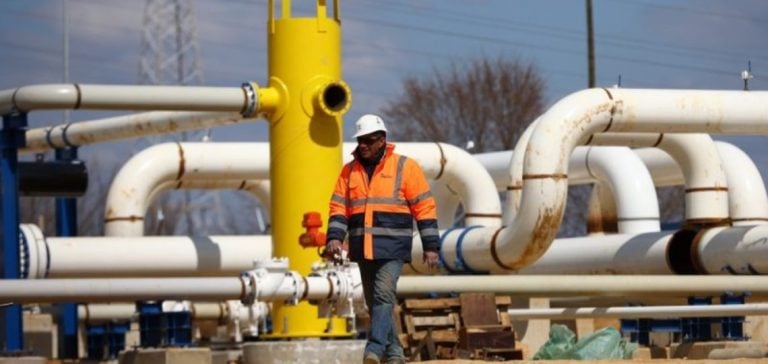ICGB, operator of the gas pipeline linking Greece and Bulgaria, has signed a strategic agreement with DESFA, the Greek gas network operator.
The aim of this partnership is to strengthen the interconnection at the Komotini point, an essential axis for gas flows between Southeast Europe and northern markets.
This agreement will enable greater fluidity in the transport of gas from Azerbaijan and regasified LNG from Greek and Turkish terminals.
The interconnector is scheduled to go into commercial service on October 1, 2024, in parallel with the launch of the Alexandroupolis floating regasification unit (FSRU) in northern Greece.
This new LNG infrastructure will enhance energy security in Europe, while facilitating access to additional gas volumes to meet growing demand in the region.
Alexandroupolis FSRU: key role in regional supply
The Alexandroupolis floating regasification terminal (FSRU), with a capacity of 5.5 billion cubic meters per year (Bcm/yr), is a central element in the strategy to diversify energy sources for Greece and its European partners.
Although the commissioning of this FSRU has suffered several delays due to technical problems, its start-up in October 2024 represents a major step forward in increasing liquefied natural gas (LNG) import capacity in South-East Europe.
This agreement between ICGB and DESFA reinforces the importance of the regional gas infrastructure.
It facilitates the flow of gas between Greece, Bulgaria and Central European markets, using diversified routes to secure long-term energy supplies.
Expansion capacity of the Greece-Bulgaria gas pipeline
ICGB also plans to increase the pipeline’s transport capacity from 3 billion cubic meters per year (Bcm/yr) to 5 Bcm/yr.
Although market tests carried out in 2023 showed lukewarm interest in this capacity increase, the company sees this expansion as a necessary strategic objective to secure regional natural gas supplies.
This capacity expansion is part of a broader vision to strengthen energy infrastructures in South-East Europe.
The pipeline’s increased capacity will enable it to transport gas from a variety of sources, including regasified LNG and gas from Azerbaijan, thus meeting the need for energy diversification in a context of market volatility.
Gas market challenges and price volatility
LNG prices in the Mediterranean market remain unstable, which has a direct impact on investment decisions concerning additional transmission capacity.
In August 2024, LNG prices in the Eastern Mediterranean region were valued at a relatively high $11.86 per million British Thermal Units (MMBtu).
These price fluctuations, combined with delays in the commissioning of the Alexandroupolis FSRU, have dampened companies’ interest in booking additional long-term capacity.
However, ICGB continues to promote the expansion of its infrastructure, believing that current market volatility should not compromise the need to prepare the region’s energy future.
The construction of the Greece-Bulgaria interconnector and the expansion of the Alexandroupolis FSRU are part of this strategic preparation, guaranteeing greater flexibility to meet future gas needs.
Geopolitical issues and prospects for regional integration
The creation of this interconnector and the increase in transmission capacity between Greece and Bulgaria are part of the wider Vertical Gas Corridor, a European initiative to develop an integrated gas infrastructure network in South-East Europe.
This interconnection is essential to enable the flow of gas to Central and Eastern Europe, where energy needs continue to grow.
Southeast Europe is particularly exposed to geopolitical risks and price fluctuations on the global energy market.
Diversification of supply sources, through infrastructures such as the Greece-Bulgaria gas pipeline and the Alexandroupolis FSRU, offers greater resilience in the face of these uncertainties.
This reinforcement of gas infrastructures is also crucial for the energy security of the countries in the region, which are largely dependent on imports to cover their natural gas needs.
The agreement signed between ICGB and DESFA, while responding to immediate imperatives in terms of gas flow management, is part of a wider strategy to integrate energy infrastructures in South-East Europe.
This not only ensures greater security of supply for years to come, but also supports the region’s energy transition by facilitating access to diversified gas sources.





















